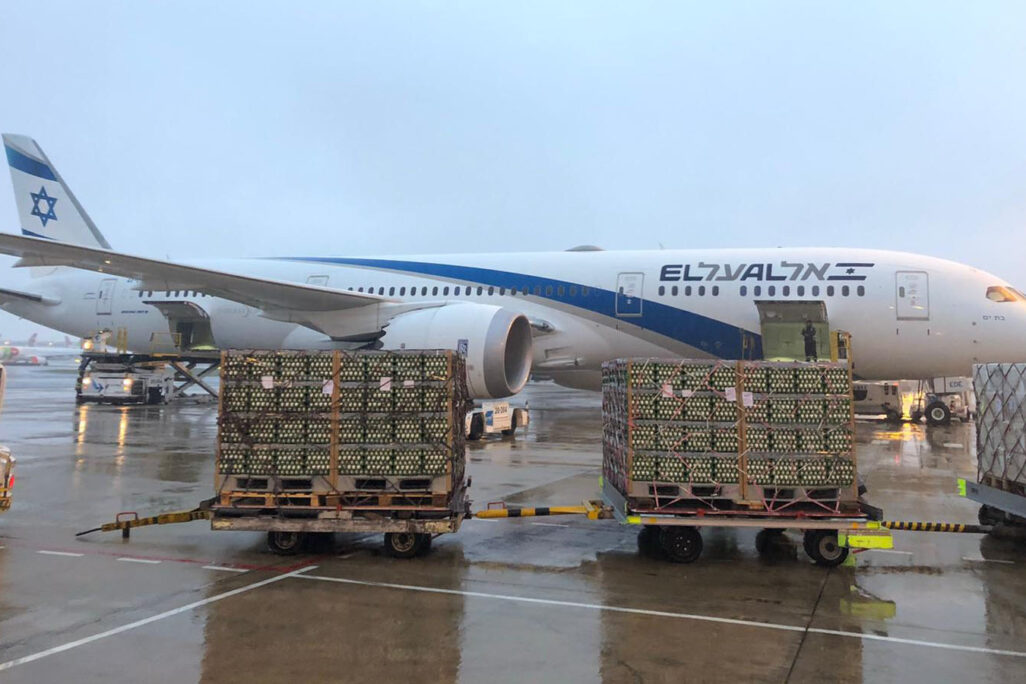
Around the world, governments have been offering beleaguered airline companies much needed assistance to overcome COVID-19. But the unanimous position taken by those governments seems to have skipped over Israel. On the contrary, the Israeli Ministry of Finance seems intent on using the crisis to force El Al into restructuring that will mean widespread layoffs and expense reduction.
The airline industry has been one of the hardest hit by the coronavirus crisis. Along with other tourism based industries, airlines were some of the first companies to feel the effects of the virus, with global demand for flights falling as early on as January. Alexandre de Juniac, CEO of the International Air Transport Association, has also claimed that airlines will remain in distress long after social distancing measures have been lifted, and expects recovery to start only in a year and a half from now.
El Al has been spiraling into crisis for a month now, as demand for flights has fallen to a record low. While the company considered to be a national symbol in Israel appealed for government assistance weeks ago, the MoF has yet to agree to a bailout plan, claiming that any plan must be accompanied by harsh restructuring, including layoffs.
Israel is the only country not to bail out its national airline
It is obvious to see why COVID-19 has hit airlines so hard. Measures taken to prevent the spread of the epidemic have caused countries to restrict the entry of foreigners, with governments urging their citizens not to fly abroad. But airlines are also vulnerable for another, structural reason. Airline fleets are cost intensive, which means that companied are highly leveraged. On the other hand, these companies have constant expenses that must be honored even in times of crisis. This means that the sudden, steep drop in demand for flights has brought company to the verge of collapse.
Most governments regard their national airline company as an essential asset, which is why they have gone to such lengths to protect them. That is true despitr the fact that most national airlines today are in fact privately owned, after being privatized in the 90's.
Italy has suffered the worst public health crisis so far, and is expected to suffer a severe recession. That is why the Italian government decided last month to nationalize the national airline Alitalia, promising to spend hundreds of millions of Euros to bail the company out and return it to normal activity as soon as the crisis ends.
Norway and Sweden have also promised to pay 75% of Scandinavian Airlines' workers' salaries, and offer 300 million dollars of government backed loans to the company. The US has put up a 58 billion dollar bailout package for airlines.
The amazing thing about the government aid to airlines that we have been seeing around the world is that it has been given unconditionally. The reason for this is that airlines are essential for a speedy economic recovery. Some governments have taken over shares in the company, effectively nationalizing them. Others have demanded that dividends be invested back into the company as a condition for government assistance. None have demanded restructuring and layoffs.
El Al is in the hands of the MoF
None apart from Israel. El Al has been badly hit by the crisis, and as early as a month ago warned that it was in danger of collapsing. El Al has been negotiating terms of a bailout deal with the MoF for over a month, while 5,000 of its workers have been sent on furlough and 1,000 others have been fired. Even so, while the company has been warning that further delay could increase chances of collapse, an agreement is yet to be reached.
The point of contention is the MoF's insistence on restructuring as a precondition to government help. The MoF has demanded sweeping layoffs, and a dramatic pay cut for workers, transforming Israel's once national airline into a low cost company. The Histadrut, which has for many years opposed cuts to wages and benefits in El Al, has warned that it will not allow the MoF to use the crisis as an excuse to harm working conditions at El Al.
Last week Arnon Bar David, chairman of the Histadrut, and Dubi Amitai, chairman of the Business Association appealed to PM Benjamin Netanyahu on behalf of El Al, calling for him to intervene and secure a government backed loan to the company. "Unless granted a government backed loan, El Al will collapse. The government's disengagement from El Al is an unacceptable neglect of all the values we hold dear. The citizens will pay an unreasonable price for it" said the two in and claiming that inaction could lead to a collapse, which would result in a NIS 2.5 billion hit to GDP.






